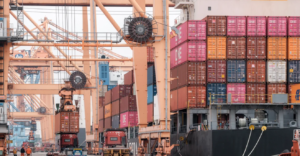Brazilian President Luiz Inácio Lula da Silva criticized U.S. President Donald Trump’s decision to impose higher tariffs on various products, warning that it could harm both the American and global economies.
Lula made these remarks during the conclusion of his four-day visit to Japan, where Trump’s recent move to apply a 25% tariff on all car imports had significant implications. Japan, being a major auto exporter and a close ally of the U.S., was especially impacted, as the U.S. is the largest market for Japanese cars.
“I am deeply concerned about the actions of the American government,” Lula stated. “I worry because free trade is being undermined, and multilateralism is being weakened.” He further explained that he doesn’t see any positive outcomes from Trump’s tariff policy, as it would likely lead to higher prices for U.S. consumers, fueling inflation and prompting increased interest rates, which could ultimately slow down economic growth.
Lula also remarked that Trump is only the president of the United States, not the entire world, and emphasized that “this protectionism benefits no country globally.”
Japanese Prime Minister Shigeru Ishiba reiterated his desire for Japan to be excluded from the new tariffs. He and Brazilian President Lula agreed to strengthen their countries’ cooperation in economic, trade, and security sectors.
As Trump’s tariff threats have sparked tensions and retaliation pledges from Canada, Mexico, China, and Europe, Japan has been working to strengthen its relationships with other nations.
Japan’s Chief Cabinet Secretary Yoshimasa Hayashi called Trump’s decision on auto tariffs “extremely regrettable” and emphasized that Japan had strongly urged an exemption.
Brazil, which is the top steel exporter to the U.S., is considering filing complaints with the World Trade Organization and may impose retaliatory tariffs in response.
Brazil is not a major target for trade retaliation from Trump, as the U.S., its second-largest trading partner, exports more to Brazil than it imports from the country.
In 2024, the U.S. had a trade surplus of $7.4 billion with Brazil, marking an increase of nearly 32% from the previous year. Brazil’s primary exports to the U.S. include petroleum, iron, and steel, while its top imports from the U.S. consist of crude and refined oil, gas turbines, aircraft, chemicals, and machinery.














